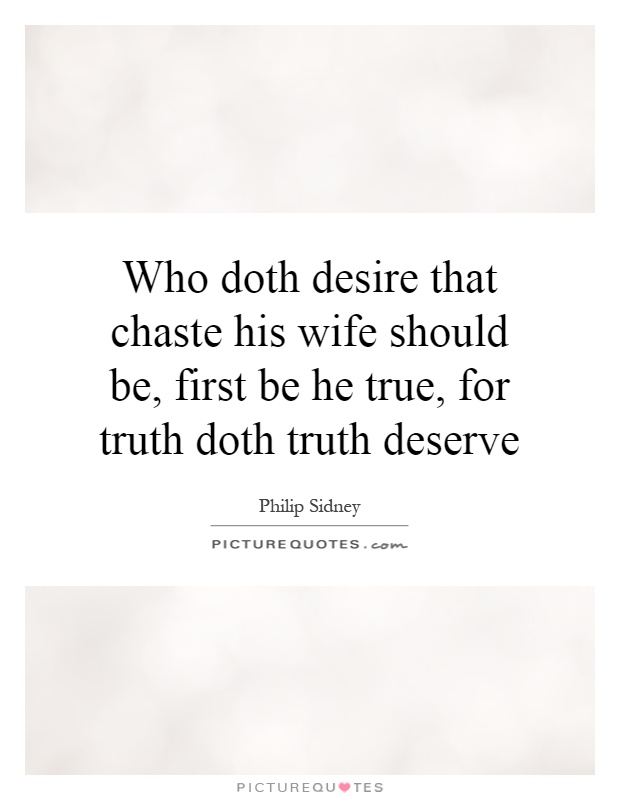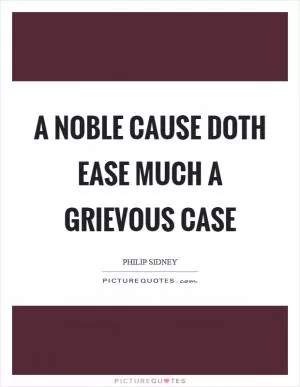Who doth desire that chaste his wife should be, first be he true, for truth doth truth deserve

Who doth desire that chaste his wife should be, first be he true, for truth doth truth deserve
Sir Philip Sidney was a prominent figure in the Elizabethan era, known for his chivalrous ideals and dedication to truth and virtue. In his work, "Astrophil and Stella," Sidney explores the themes of love, truth, and fidelity, reflecting the values of his time.The line "Who doth desire that chaste his wife should be, first be he true, for truth doth truth deserve" encapsulates Sidney's belief in the importance of honesty and fidelity in relationships. In the context of marriage, Sidney emphasizes the need for both partners to be true to each other in order to maintain a chaste and virtuous union.
For Sidney, truth is the foundation of all virtues, including chastity. He believed that a marriage built on lies and deceit could never be truly pure and chaste. In order for a husband to expect his wife to be faithful and virtuous, he must first demonstrate his own commitment to truth and honesty.
Sidney's emphasis on truth and fidelity in marriage reflects the values of the Elizabethan society in which he lived. During this time, marriage was seen as a sacred bond, and fidelity was considered essential for a successful union. Sidney's writings on love and marriage were influenced by the chivalric ideals of his time, which emphasized honor, loyalty, and virtue.












 Friendship Quotes
Friendship Quotes Love Quotes
Love Quotes Life Quotes
Life Quotes Funny Quotes
Funny Quotes Motivational Quotes
Motivational Quotes Inspirational Quotes
Inspirational Quotes